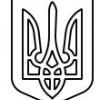Онлайн книги и изследвания за Руската революция в 1917 г. и Гражданската война в Русия
-
Последна активност
-
Генетиката в помощ на историята: сарматският произход на българи и славяни 1 2 3 4 100
От Южняк, in Средновековна история
- 2479 мнения
- 284524 прегледa
-
- 34 мнения
- 632 прегледa
-
- 1790 мнения
- 155300 прегледa
-
- 2 мнения
- 16 прегледa
-
- 644 мнения
- 16993 прегледa
-
-
Последно разглеждащи 0 Потребители
- No registered users viewing this page.


Препръчано мнение
Напиши мнение
Може да публикувате сега и да се регистрирате по-късно. Ако вече имате акаунт, влезте от ТУК , за да публикувате.